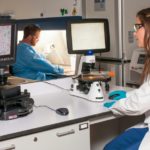
What is the OET Medicine?
The year 2020 brought about a lot of changes around the world.
One of the changes for doctors wanting to work in the United States in hospitals and medical centers was the suspension of the United States Medical Licensing Exam (USMLE) Step 2 Clinical Skills exam.
What Happened
Due to pandemic issues in regards to COVID-19, the USMLE exams were all suspended in March of 2020.
While roll-out of Step 1 and Step 2 CK took place over time again, the Step 2 CS was undergoing design change. There was talk within the community about all the problems the Step 2 CS has faced in the past, with the aim to perhaps make the test online only.
At the end of January 2021, the USMLE organization announced that they were ending the Step 2 CS permanently. Enter the ECFMG and the OET Medicine exam.
ECFMG and OET Medicine
The Educational Commission for Foreign Medical Graduates (ECFMG) is the main authority when it comes to validating and approving non-US medical graduates.
In 2020, the ECFMG responded to changes by providing around 5 pathways to residency in the US.
In addition to the pathways, there was an added requirement for all applicants to pass the
Occupational English Test (OET) Medicine.
For more information about the pathways, please check www.ecfmg.org for details.
What is the OET Medicine test?
The Occupational English Test (OET) Medicine is an exam developed in Australia to assess English language skills for non-native speakers in medical settings.
The exam is run by Cambridge Boxhill Language Assessment Unit Trust, based in Melbourne, Australia. It is a co-owned operation between Boxhill Trust and the University of Cambridge.
There are 12 occupations tested in the OET.
- Dentists
- Dieticians
- Doctors
- Nurses
- Occupational Therapists
- Optometrists
- Pharmacists
- Physiologists
- Podiatrists
- Radiologists
- Speech Therapists
- Veterinarians
As you can see, the test focuses on medical or medical-related professions.
The OET tests all language skills: listening, reading, writing and speaking.
For listening and reading, the materials in the exam will give you the answers. It is not a test about subject material.
For the writing and speaking, each profession has its own tasks.
The OET Medicine Format
The exam has four separate sections.
Listening 45 minutes
The topics are related to health.
There are 3 parts to the listening exam.
Reading 60 minutes
Like the listening, they are related to health.
There are 2 parts to the reading exam.
Writing 45 minutes
There is one task which is focused on what a doctor has to write.
It is often a letter of referral or discharge, or a transfer letter.
This is profession-specific.
Speaking 20 minutes
There are 2 tasks which are roleplays.
Each task is 5 minutes, with time for a warm up and preparation.
They are healthcare setting related: giving information, providing support, asking for information.
This is profession specific.
The test is only offered on the weekends (Saturday and Sunday) at approved OET testing centers.
Please check the official OET website for locations and dates offered in your country.
How is OET scored?
The OET is scored on a scale of 0 to 500.
According to the OET, a score of 350 is accepted as a passing score.
Because of the OET’s connection with the University of Cambridge, each OET score has an IELTS equivalent, which in turn has a Common European Framework of Reference for Language (CEFR) score.
IELTS is an English-language exam used by universities in English-speaking countries for non-native speakers as a qualifying exam.
CEFR is the official language level recognition in the European Union.
The exams are scored in Melbourne, Australia. The speaking interviews are recorded; only the audio is listened to and scored accordingly.
Who else accepts OET?
The OET Medicine test is accepted by the following organizations and government bodies:
- Government of Australia – Department of Home Affairs
- Australian Health Practitioner Regulation Agency (AHPRA)
- Various medical councils and associations in Australia.
- Universities in Australia
- Ireland Medical Council
- Government of New Zealand – Immigration New Zealand
- New Zealand Qualifications Authority (NZQA)
- Universities in New Zealand
- Singapore Medical Council
- Government of the UK – Immigration
- General Medical Council (GMC) UK
- Various medical councils and associations in the UK.
How to Prepare
The best thing about the OET is that it does not test medical knowledge.
The USMLE Step 2 CS tested your medical knowledge in a clinical setting in addition to English language skills.
The OET exam focuses on English in a medical or healthcare setting.
All the information in the texts and audio portions will provide the answers to questions.
You should familiarize yourself with the test format and the question types so you can take the test without any problems.
For speaking, you can practice role play situations with a partner.
An example of a role play is answering a caretaker’s questions about why the caretaker’s charge in question developed a particular disease.






